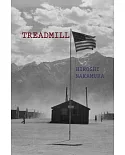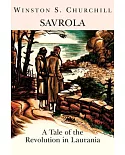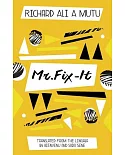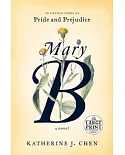Anna Karenina, by
Leo Tolstoy, is part of the
Barnes & Noble Classics series, which offers quality editions at affordable prices to the student and the
general reader, including new scholarship, thoughtful design, and pages of carefully crafted extras. Here are some of the remarkable features of
Barnes & Noble Classics:
New introductions commissioned from today's top writers and scholars Biographies of the authors Chronologies of contemporary historical, biographical, and cultural events Footnotes and
endnotes Selective discussions of imitations, parodies, poems, books, plays, paintings, operas, statuary, and films inspired by the work Comments by other famous authors Study questions
to challenge the reader's viewpoints and expectations Bibliographies for further reading Indices & Glossaries, when appropriateAll editions are beautifully designed and are printed to
superior specifications; some include illustrations of historical interest. Barnes & Noble Classics pulls together a constellation of influences—biographical, historical, and
literary—to enrich each reader's understanding of these enduring works.
Vladimir Nabokov called Leo Tolstoy’s Anna Karenina “one of the greatest love stories in world literature.” Matthew Arnold claimed it was not so much a work of art as “a piece of
life.” Set in imperial Russia, Anna Karenina is a rich and complex meditation on passionate love and disastrous infidelity.
Married to a powerful government minister, Anna Karenina is a beautiful woman who falls deeply in love with a wealthy army officer, the elegant Count Vronsky. Desperate to find truth and
meaning in her life, she rashly defies the conventions of Russian society and leaves her husband and son to live with her lover. Condemned and ostracized by her peers and prone to fits of
jealousy that alienate Vronsky, Anna finds herself unable to escape an increasingly hopeless situation.
Set against this tragic affair is the story of Konstantin Levin, a melancholy landowner whom Tolstoy based largely on himself. While Anna looks for happiness through love, Levin embarks on
his own search for spiritual fulfillment through marriage, family, and hard work. Surrounding these two central plot threads are dozens of characters whom Tolstoy seamlessly weaves together,
creating a breathtaking tapestry of nineteenth-century Russian society.
From its famous opening sentence—“Happy families are all alike; every unhappy family is unhappy in its own way”—to its stunningly tragic conclusion, this enduring tale of marriage and
adultery plumbs the very depths of the human soul.
Amy Mandelker, Associate Professor of Comparative Literature at the Graduate Center of the City University of New York, is the author of Framing Anna Karenina: Tolstoy, the Woman
Question, and the Victorian Novel and coeditor of Approaches to Teaching Anna Karenina.





















